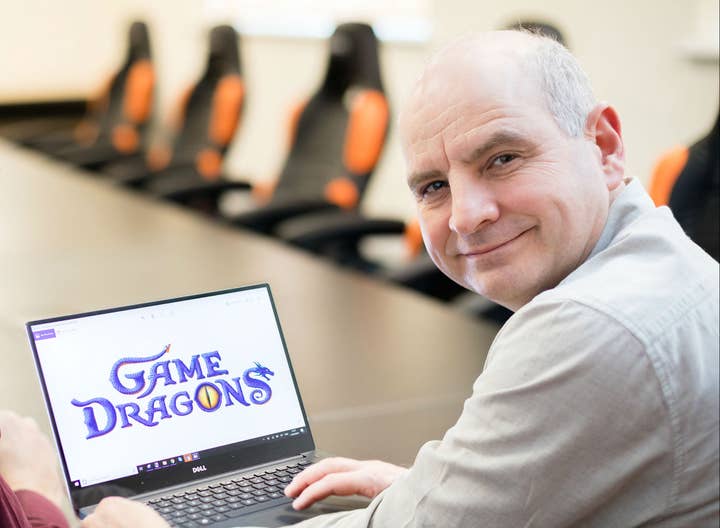Writing a business plan -- advice for indie game developers
Game Dragons' Philip Oliver on an essential but often overlooked tool for building success in indie development
A business plan is a concept that many startups think is either unnecessary or just a nice-to-have. It's often seen as an annoying extra bit of admin that's simply keeping you away from the fun of making games. The reality is that no matter how small scale your business is, or how great your ambitions, it's a vital document that will stand you in great stead for the future. Thinking about what you want to achieve helps keep you focused, but it will still allow you to change course along the way if you need to. After all, you can only plan your route if you know your destination.
Our plan was to write great games
In 1986 we decided to turn our hobby into a business. We'd already had several games published, but few had made much money. Our goal was to earn more money than our father during our gap year, so we wouldn't need to go to university and could carry on writing computer games. Back then there weren't any university courses related to games or even computer graphics.
We signed up to the government's Enterprise Allowance Scheme, which would pay us £70 a week for the first year but came with some strings attached. We'd have to attend college classes once a week to learn how to run a business. We attended sceptically, wondering what they could teach us, given that they knew nothing about games. In fact, it turned out they knew nothing about computers either.
"If all you want to do is make games then we'd recommend working in a full-time job at an established game studio"
Double-entry bookkeeping was relevant for recording our expenses and (hopefully) invoices, but the modules on writing a business plan (including cash flow forecast) seemed fairly pointless. There weren't any frames of reference for our business, and the cash flow seemed a work of fantasy since sales were impossible to predict.
We did as we were asked, however, and soon realised that, unlike school work, there were no right and wrong answers, and it was useful to make sure we'd considered everything. We made some reasonably educated forecasts and it turned out to be an extremely useful exercise. We still have the plan -- it's not great, but it makes for fun and nostalgic reading. We even made a six month update to reflect on how things had panned out.
A plan is better than no plan
If you are serious about starting your own studio then you need a business plan. It's going to take work to prepare, but nothing compared to the work you'll put in afterwards running a business and writing games. It will help you discuss, in a structured way, all the things you need to think about. Very quickly you'll realise that there's a lot of work that isn't making the game, but that's what it means to be an indie developer. If all you want to do is make games then we'd recommend working in a full-time job at an established game studio. You'll learn a great deal through being in the industry, and if you start a business later it's more likely to succeed.
Have a plan and write it down
Remember there are no right and wrong answers. You are just capturing all the key information and your plans and predictions. You're not aiming for a literary prize -- keep everything clear and concise, date every document, title it and add the authors' and contributors' names.

Your business name should be unique and reflect the personality you wish to project short-, medium- and long-term. We've seen some bizarre names that might be appropriate during the start-up phase, but wouldn't work if you have the success you are aiming for. Google your proposed name to ensure it isn't too close to someone else's name, especially if they are trading in a similar industry. Secure the domain with the .com if possible. Failing that, go for .co.uk, or .net, or even .tv or .games, so long as the company that has the .com is not in any business close to games.
Start with the overall vision of the business, keeping it concise and timeless. Perhaps include a mission statement. It's not written in stone, and can be updated later if your business pivots. Describe your background, why you're doing this, the people involved, the team's experience and the skills they each bring to the venture. Agree who is responsible for each area of the business.
Include a SWOT analysis to identify your strengths and weaknesses, the opportunities open to you and the threats you face.
Things to be clear on
Not all of the following will appear in the business plan, but it's important to be clear and make a record of these points, either in the plan or in Board Minutes:
Recognise what each founder brings in terms of money, equipment and intellectual property, and whether these are loaned or given.
Agree what ownership each person has of the business and what remuneration they will receive. Agree how any remuneration changes are to be agreed down the line, and what happens if someone wants to leave. Having this discussion at this point takes the emotion out if it actually happens, and ensures a fair resolution. You should also consider and decide how you would approach the situation if one of your team members is not pulling their weight, for whatever reason.
"Work out how you will vote on major decisions, and what actually constitutes a major decision"
It's a good idea to also work out how you will vote on major decisions, and what actually constitutes a major decision. We'd suggest it's any commitment that could amount to a cost or income in excess of £10,000, but it's whatever is right for you. The default in the case of a limited company is that voting is proportional to share holdings.
Company structure
Is this going to be a sole trader business, a partnership, or limited company? It's usually advisable to start as a limited company. While this carries some set-up costs, it has several legal advantages and will allow you to take seed investment and (if you're in the UK and qualify) you can claim Video Games Tax Relief (VGTR). Whatever you decide you will need a separate bank account, and you'll need to agree what authorities are required for withdrawing money.
It's good practice to sign up an accountant and lawyer (solicitor) at the beginning. Most practices have fair rates for start-ups and can provide useful advice in many areas. It's ideal if they've previously worked with games companies as they will understand your business better. You will need to collect and record all receipts in a software package like Xero or Quickbooks -- the accountant you choose will likely have a preference.
Clear business goals
Your business plan should include goals for the short-term (less than three months), medium-term (within the first year), and the long-term (either three or five years). Allow for some flexibility; for example, after two projects you may want to consider self-publishing. Record the alternatives; they are not commitments, just a record of thoughts you had when setting up the business.
Cash flow is king
Include a cash flow forecast for at least one year. Use a spreadsheet with months across the top and categories down the left side.
"As you develop your business and games you'll find things change, and that's absolutely fine"
The top section is traditionally income rows and should include sales and royalties broken out per game, with a miscellaneous 'other' row for income unrelated to specific games -- for example, selling old equipment. Predicting sales of games you've not yet made will be tough, but it's important to attempt it. This will force you to discuss your predictions and targets. We'd suggest you err on the pessimistic side.
The next section should cover all your anticipated costs, including salaries/remuneration, contractors, taxes and pensions. These will probably be zero until you predict there will be enough income to cover them. If you are taking on office space, add in rent and associated utilities. Other expenses include PR and marketing, hardware (PCs, dev kits, servers etc), software (tools/engine), insurance, repairs, travel, accommodation, event costs, subscriptions, memberships and consumables (paper, ink, batteries, coffee, milk, etc), legal, financial and bank costs. If you plan on taking on staff it's useful to break out recruitment costs too. Record Share Capital introduced and any director or other loans.
The most important thing to keep track of is the projected bank balance. And you really don't want this dipping into the red, which will almost certainly require cash injections early in the life of the business. Cash flow is vitally important for a business of any description. Even if you can predict correctly that your earning will exceed your costs, the timing of the money can cause serious issues.
The main reason indie developers often start out using publishers is to provide cash for development and take care of PR, marketing, localisation, QA and submissions. This is useful for the expertise they bring as well as finances.
Seek advice
Show your plan and cash flow forecast to people whose opinion you trust and respect and take their feedback. A non-exec director with serious business experience can be useful to advise also, although obviously the final decisions are yours. It's your business.
"No plan survives first contact with the enemy"
As you develop your business and games you'll find things change, and that's absolutely fine. It's a good idea to update your plan every three months. Reflect on what you've done against what you planned to do, update the numbers and adjust your strategy and plans going forward.
The future
Hopefully in a few years' time you too will look back on this early business plan and see how it set the course for your successful business.
